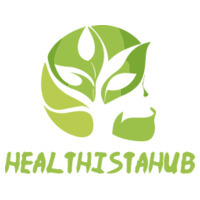High cholesterol casts a shadow over some of our favorite indulgences: buttery desserts, juicy steaks, sizzling bacon, and even coffee. According to the American Heart Association (AHA), nearly 37 million Americans struggle with unhealthy levels of this yellowish, waxy substance that resides in the lipids, or fats, within the bloodstream. Over time, cholesterol can accumulate in the arteries, restricting blood flow to the heart and raising the risk of coronary disease, heart attacks, and strokes. However, cholesterol isn’t all bad, explains Trish Rossi, ND, a doctor of naturopathy at the Natural Alternative Center in New York City. “Your body produces it naturally, and it plays some crucial roles. It’s essential for building cell membranes and sex hormones. It’s only problematic when you have too much.”
The AHA sets the threshold at 200 mg/dL, which includes both HDL (good) cholesterol and LDL (bad) cholesterol. While prescription statins, such as Lipitor, can reduce cholesterol production in the liver, they come with potential side effects like muscle weakening, digestive issues, and liver damage. A recent study that analyzed more than 91,000 individuals over 15 years found a 9 percent increase in the risk of type 2 diabetes among statin users.
Here are four natural ways to lower your cholesterol:
1. Plant Stanols and Sterols
These plant fibers, found in various fruits, vegetables, legumes, and vegetable oils, help prevent cholesterol absorption into the bloodstream. “When you eat, cholesterol typically passes through the liver and enters the bloodstream,” says Brian Olshansky, MD, a professor of medicine at the University of Iowa. “Stanols and sterols bind cholesterol in the gut, preventing it from being absorbed.” Research published in Nutrition, Metabolism & Cardiovascular Diseases showed that a stanol-rich diet significantly reduced LDL cholesterol and lowered cardiovascular disease risk by 26 to 30 percent.
Take: 1.7 grams daily. You can also find sterols and stanols in margarine substitutes like Benecol and Smart Balance.
2. Green Tea
Rich in polyphenols, an antioxidant, green tea can block LDL absorption in the intestines. Some studies suggest green tea can lower LDL levels by up to 15 percent, though the data are somewhat controversial, according to Olshansky.
Take: 100 to 750 mg of green tea extract daily, or drink up to five cups a day.
3. Niacin
Increasing your HDL levels can be as important as lowering your overall cholesterol. Niacin, or vitamin B3, helps the liver produce more HDL. Judith Stanton, MD, medical director of the California Healing Institute in Albany, New York, notes that niacin also reduces a particularly harmful type of cholesterol called lipoprotein(a), which contributes to plaque buildup in the arteries.
Take: 5,500 mg daily at bedtime for two weeks, then increase by 500 mg every two weeks, up to 7,500 mg daily. Note: To avoid heat flush—a harmless but uncomfortable side effect of niacin—drink a glass of water, take a baby aspirin, or use a slow-release niacin.
4. Lecithin
Lecithin, found in soybeans and eggs, is a combination of inositol (a compound that metabolizes fats and cholesterol) and choline (an essential nutrient that supports nerve impulses in the brain and manages fat deposits in the liver). It binds to LDL and helps remove it from the body.
Take: 2 tablespoons (in granule form) three times daily, mixed into salads, cottage cheese, or beverages.





